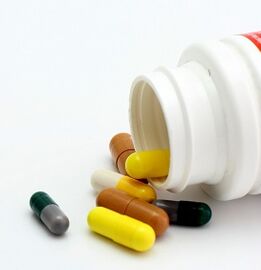
The urinary system is often exposed to infections.One of the common infectious diseases of the urinary tract is cystitis.What to do with cystitis in women?Treatment of pathology must begin at the first symptoms.In the absence of therapy, the disease acquires a chronic form, which will be much more difficult to cope with.
Provoking factors and symptoms of the disease
Cystitis is a disease of an inflammatory-infectious nature that develops in the area of the bladder.The disease is most often diagnosed in women, but cases of cystitis in men are not excluded.
The reason for the development of cystitis becomes a conventional pathogenic flora in the urinary paths of infection:
- streptococci;
- Escherichia sticks;
- staphylococci;
- and others.
The infection may be a consequence of non -compliance with the rules of hygienic norms for the care of the genitals or the result of the inflammatory process.Pathology is also transmitted sexually (ureaplasma or mycoplasma).
With cystitis, the patient has symptoms:
- pain in the process of urination;
- sudden attacks of pain in the lower abdomen;
- a feeling of incomplete devastation of urinary;
- urinary fluid incontinence;
- urine color is muddy;
- urine release with blood;
- Temporary fever to 38 degrees.
In women, cystitis treatment is carried out on an outpatient basis by taking drugs.When conducting therapy at the initial stage, the disease can be eliminated without any complications.
The choice of treatment tactics

The effectiveness of therapeutic measures depends on how early the diagnosis is carried out.The determination of the cause of the pathology (identification of the type of infection) also plays a significant role.With the development of a chronic or acute form of cystitis, medicines may not have an effect, and the infection will progress further, provoking diseases of the kidneys and genital organs.
The main task of specialists involved in the therapy of the patient is to prevent the inflammatory process by destroying pathological microorganisms in the area of damage to the urinary mucosa.
The choice of a medicine for cystitis is exclusively engaged in a doctor taking into account the characteristics of the disease in women:
- type of infection;
- The degree of development of the disease;
- individual characteristics of the body (age, gender, weight);
- the presence of contraindications;
- The tendency to manifest the adverse reaction.
An important point is to determine the reaction of pathological microorganisms to the composition of the drug.For this, a special study is carried out to help establish the most suitable medication.
Competent approach to the treatment of cystitis
Drug therapy includes a complex of drugs of different groups.A woman is prescribed tablets from cystitis not only to destroy the infection, but also to prevent inflammation, as well as to reduce the intensity of symptoms.
With complex therapy, medicines are recommended for groups:
- antibiotics;
- herbal preparations;
- antispasmodics;
- anti -inflammatory;
- Probiotics.
For more effective treatment of cystitis in women, it is necessary, in addition to taking drugs, to adhere to a special diet and observe hygiene measures.
Antibiotics
The main group of drugs that help prevent the progression of infection with cystitis in women are antibacterial drugs.
Antibiotics have a strong effect on the weight of the body, so it is desirable to take them only as prescribed by a doctor.
Plant drugs
Phytopreparations have a lower effect than antibiotics, however, the toxic effects of them are less, so their use is permissible during pregnancy (with the resolution of a specialist).
In women, cystitis based on a natural composition is used in combination with antibiotics.Thus, treatment and restoration are faster.
Antispasmodics
With cystitis, the patient is often concerned about spasms in the urinary tract, especially during urination.To eliminate pain and cramps, a woman is recommended for cystitis drugs with a drotaverin content.
Taking drotaverin -containing drugs is recommended for symptomatic therapy.A short term reception is possible (2 - 3 days).
Anti -inflammatory drugs
In addition to antibiotics, anti -inflammatory medicines that prevent the development of complications, especially with increased risks of kidney inflammation, can be prescribed to a patient with cystitis.
Medications of the anti -inflammatory group are often prescribed for one -time administration with increased intensity of symptoms (pain or temperature).
Probiotics
The use of antibiotics in most cases leads to a violation of the functionality of the stomach due to the effects of drugs on the walls of the gastrointestinal tract.To facilitate the operation of the digestive tract for the treatment period, a joint intake of probiotics is prescribed.
Taking probiotics reduces the risk of an adverse reaction to drugs from the gastrointestinal tract.
Contraindications and side effects
Any medications for the treatment of cystitis in women should be selected taking into account possible contraindications.In the process of therapy, the patient may also manifest symptoms of an adverse reaction, the cause of which are contraindications, exceeding the recommended dosage or a possible individual reaction of the body to drugs.
Contraindications:
- individual sensitivity to the component components;
- a number of chronic diseases;
- impaired renal or liver functions;
- Problems of the central nervous system.
Most medicines are not recommended for taking during pregnancy or breastfeeding, as well as at the age of 18 or after 60 years.
Side reaction:
- disorder of the gastrointestinal tract (diarrhea/constipation, nausea, pain in the abdomen);
- jumps in blood pressure, tachycardia and other disorders of the cardiovascular system;
- headaches or bouts of dizziness;
- depressive states, or mood swings;
- allergic reaction on the skin;
- Change of urine color (brightly yellow).
Taking drugs in the presence of contraindications can provoke the development or exacerbation of concomitant diseases.With an adverse reaction, the patient may be prescribed symptomatic therapy.
Proper nutrition during treatment

In order to accelerate the treatment of cystitis and prevent complications in conjunction with the use of drugs, it is necessary to observe a diet that restores the mucosa microflora and the functionality of the urinary.
For use is recommended:
- a large number of fruits, as well as vegetables;
- fruit drinks, green tea or freebies (without sugar);
- Close -grain cereals.
Carrots, cabbage, pumpkin, asparagus, bran, and cedar nuts should be included in the diet.
With cystitis, the consumption of any salt that has an irritating effect on the walls of the bladder should be excluded.
It is also undesirable to use:
- seasonings;
- canned food;
- smoked meats;
- sour;
- Sharp dishes.
The attending physician recommends the correct diet or can be addressed to a nutritionist.
Treatment with cystitis medicines should not begin without preliminary consultation of a doctor who establishes an individual treatment scheme for each woman.
























